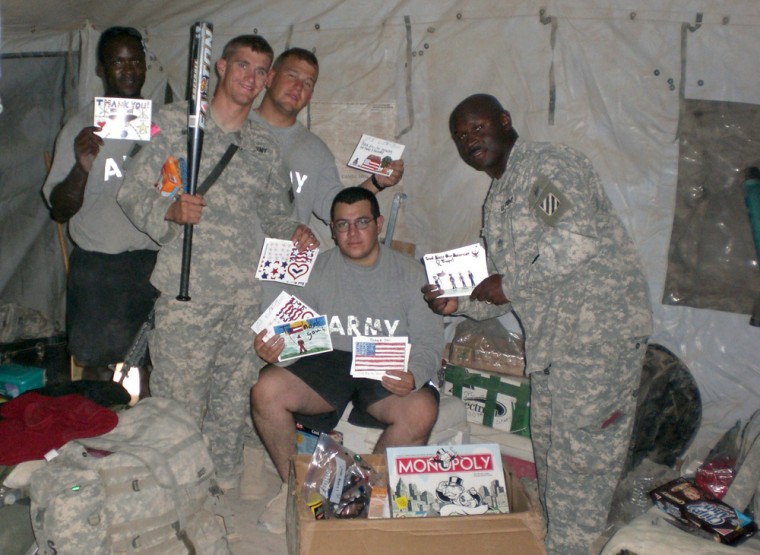Great news! There really is a way for anyone to send holiday greetings to wounded soldiers at military hospitals across the country. This was not possible a week ago, when I warned you about a mass e-mail urging people to send a card to “A Recovering American Soldier” at Walter Reed Army Medical Center. The e-mail still has erroneous information, so keep reading for details on what you need to do.
After the terrorist attacks on Sept. 11, 2001, the U.S. Postal Service stopped accepting letters, postcards, or packages that are not addressed to a specific person at a military medical facility. Department of Defense regulations require military hospitals to reject any mail that is addressed to “A Recovering American Soldier,” “Any Wounded Soldier,” or “Any Service Member.”
Now, the American Red Cross and Pitney Bowes, working with the Department of Defense, have come up with a way to satisfy the military's security needs so the mail can get through.
Cards must be received by December 27.
Send them to:
We Support You During Your Recovery!
c/o American Red Cross
PO Box 419
Savage, MD 20763-0419
Pitney Bowes will screen the cards for any security threat. The Red Cross will distribute them at Walter Reed and other military hospitals across the country.
“We will personally hand-deliver the cards to patients,” says Red Cross spokesperson Devorah Goldburg.
Goldburg tells me you can put a bunch of cards in a big envelope or even send them in a box, as long as there is a return address listed. “Care packages” are not part of this program.
"Good-hearted Americans from all over the country will be able — in a safe, secure, reliable fashion — to convey their thanks to the troops who have sacrificed so much,” says Matthew Broder, a spokesman for Pitney Bowes.
Remembering service members overseas
This can be a very lonely time for military men and women stationed overseas, especially those in Iraq and Afghanistan. Getting holiday cards from back home is a big morale booster.
Here’s a simple and free way to do that. Go to Let's Say Thanks, a site created and run by Xerox employees.
There are 53 postcards to choose from, all drawn by kids from across the country. They’re bright and colorful — lots of bald eagles, American flags, hearts and the Statue of Liberty.
Click on a card and you will see the first name and age of the child who drew it, plus the city where they live.
Once you find your favorite design, you can write a message or choose one of 10 pre-written greetings, such as: “Sending you big hugs and cheer from home. Thank you so much for your service and bravery. Come home soon!”
Xerox prints the cards. A non-profit group, Give2TheTroops, puts them in care packages and ships them overseas.
Carl Langsenkamp, director of public relations at Xerox, tells me about 10 million cards have been sent overseas since the website went up about a year and a half ago.
If you go on the site, look for a link that says “From the Troops.” You will be able to see photos and messages from the men and women who have gotten the cards.
An Army major writes, “It is incredibly uplifting to receive messages like this and brings a smile to our faces to know that these wonderful people took the time to do something for us.”
“It made my day,” says an Air Force sergeant. “I have it on my desk to uplift my spirits when I'm feeling down.”
This is a non-partisan effort, Langsenkamp says. “It’s not about the conflict. It’s about the people over there.”
I want to extend a big thanks to all the readers of the ConsumerMan column who wrote to tell me about this great program.
Other ways to show your support
Walter Reed suggests visiting the “” website where you can make a donation to one of the more than 300 non-profit organizations dedicated to helping U.S. troops and their families.
Other resources
- The website lists ways to support our troops.
- You can post greetings on the “” message board.
- You can donate a via the USO site.
- Support A Recovering American Soldier — Updated!
